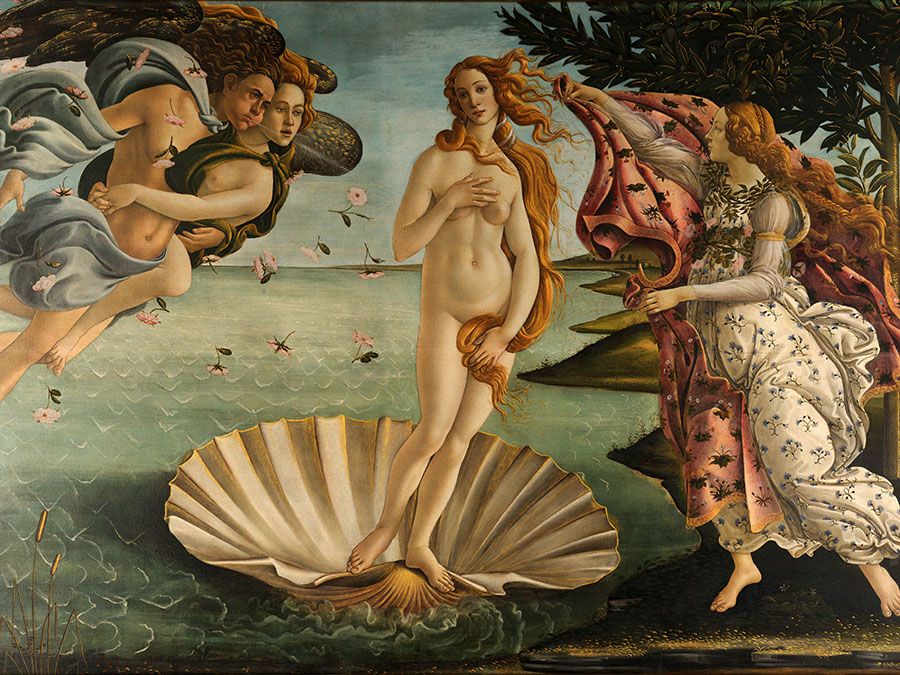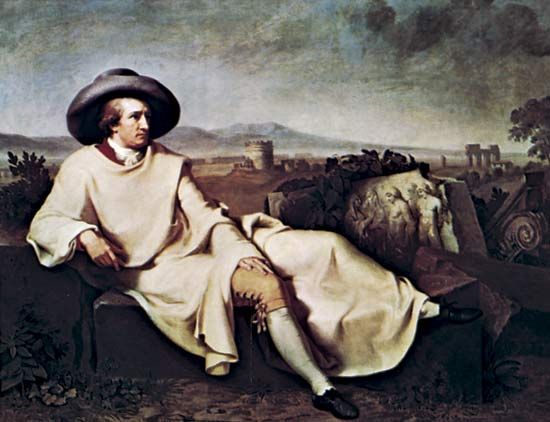Johann Heinrich Wilhelm Tischbein
Our editors will review what you’ve submitted and determine whether to revise the article.
- Born:
- Feb. 15, 1751, Haina, Hesse [Germany]
- Died:
- June 26, 1829, Eutin, Oldenburg (aged 78)
- Movement / Style:
- Neoclassical art
Johann Heinrich Wilhelm Tischbein (born Feb. 15, 1751, Haina, Hesse [Germany]—died June 26, 1829, Eutin, Oldenburg) was a German portraitist and friend of the writer J.W. von Goethe.
Tischbein began his career painting portraits at the Prussian court in Berlin. In 1779 he went to Italy and in 1789 was appointed director of the art academy in Naples. Forced to leave in 1799 because of war, the painter retired to northern Germany. Tischbein’s most famous painting, “Goethe in the Campagna,” was painted in 1787 at the time the two men traveled from Rome to Naples. Though Goethe induced the artist to turn his interest toward the Neoclassical movement, Tischbein was later influenced by the ideas of German Romanticism.
Tischbein belonged to a family that produced more than 20 artists in three generations. Others of importance include Johann Heinrich Tischbein the Elder (1722–89), who was a court painter in Kassel, in Hesse, and the portraitists Johann Valentin Tischbein (1715–68) and Anton Wilhelm Tischbein (1730–1804).



















